Tim-D-AmazonBookPubl 0 to 1.1
Tim-D-AmazonBookPubl 0 to 1.1 - Part 1
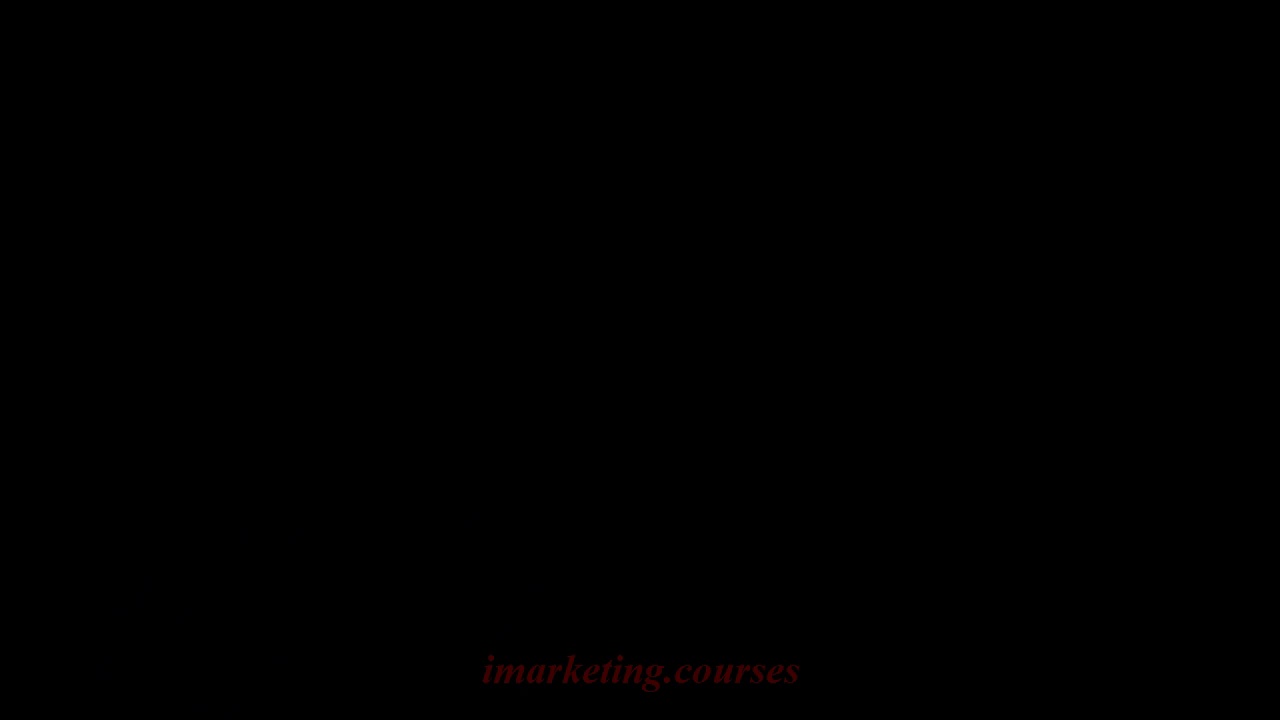
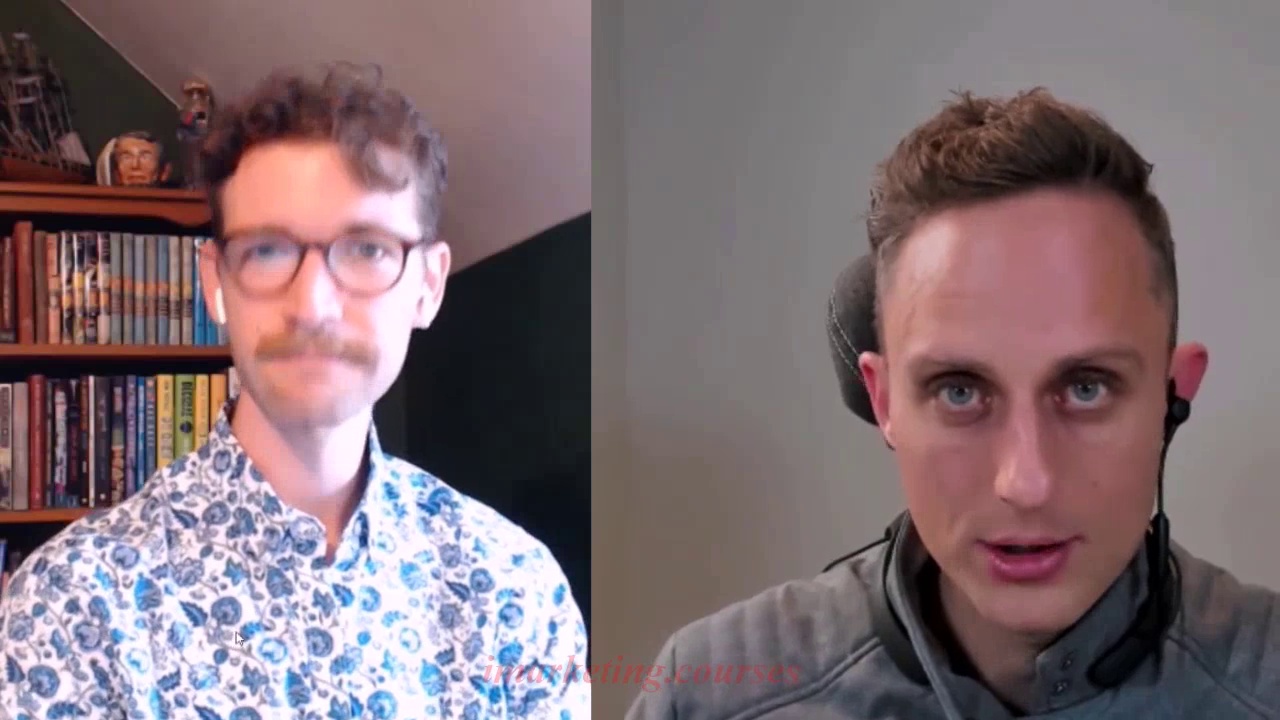
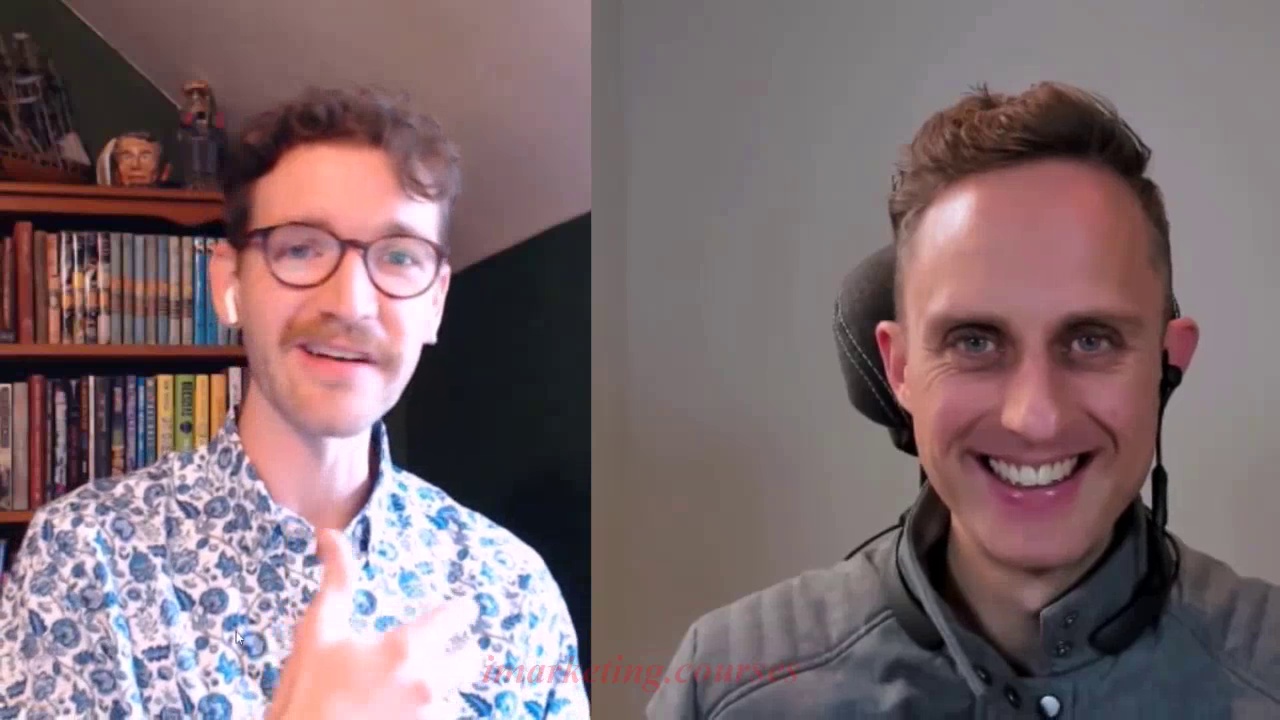
Tim Denning and Todd Bryson welcome everyone to the Amazon book publishing course. They aim to teach how to write and publish a book on Amazon quickly to generate recurring revenue.
The course will be practical with screenshares and handouts. Students will see step-by-step instructions. Interacting with other students in the writer's community is highly encouraged.
Todd Bryson shares how Amazon publishing changed his life 7 years ago. His goals are to show what's different about these books, and how to quickly validate ideas, write the book, and start selling it.
He strongly recommends that students join the course community which creates additional value and opportunities.
.Tim-D-AmazonBookPubl 0 to 1.1 - Part 2



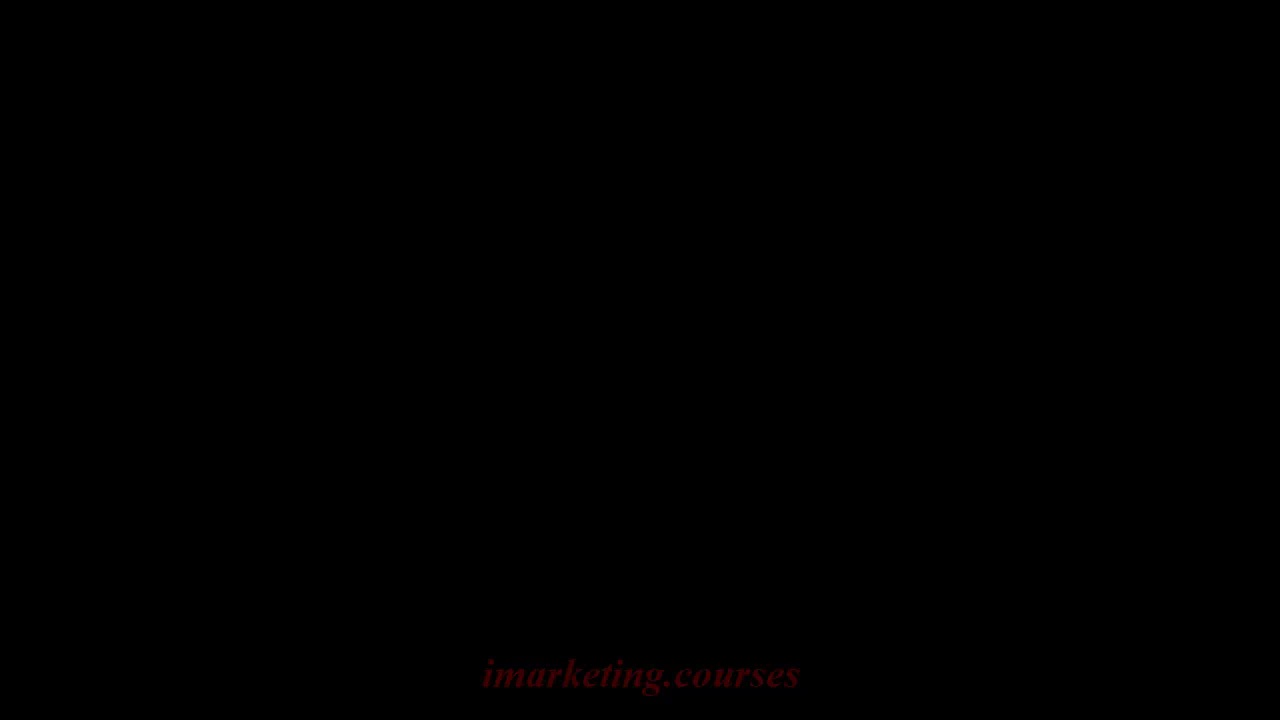
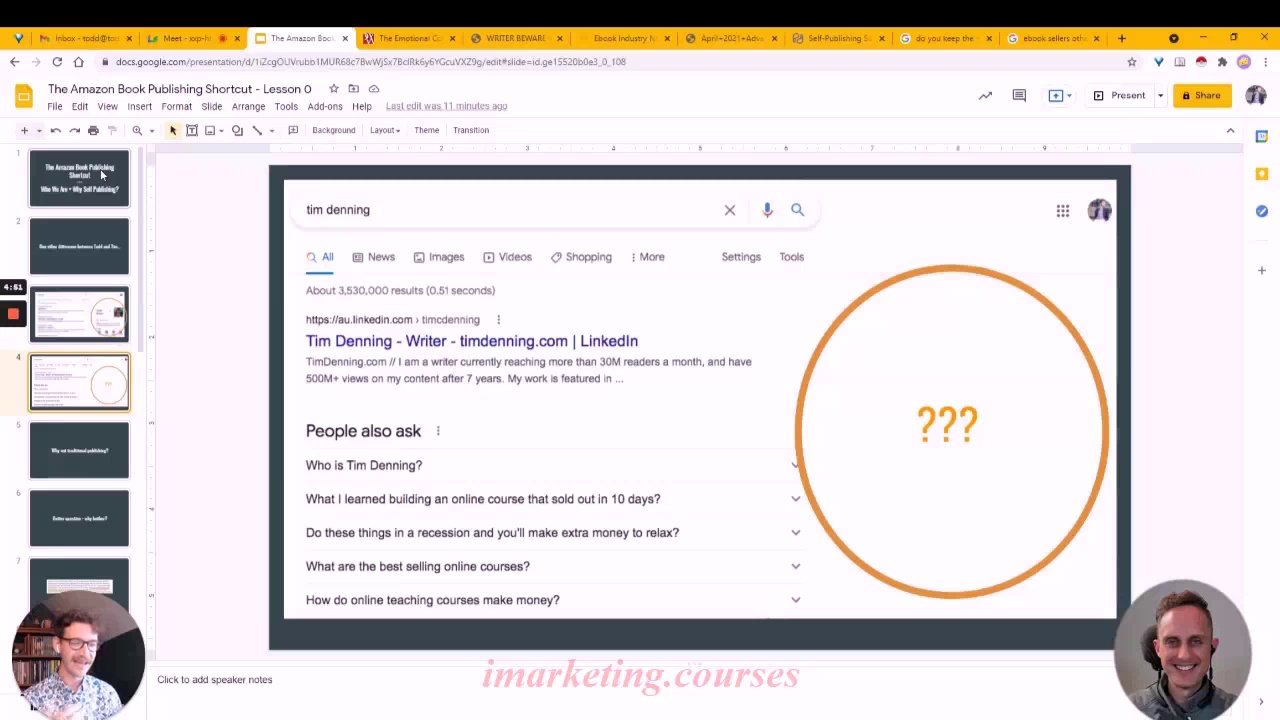
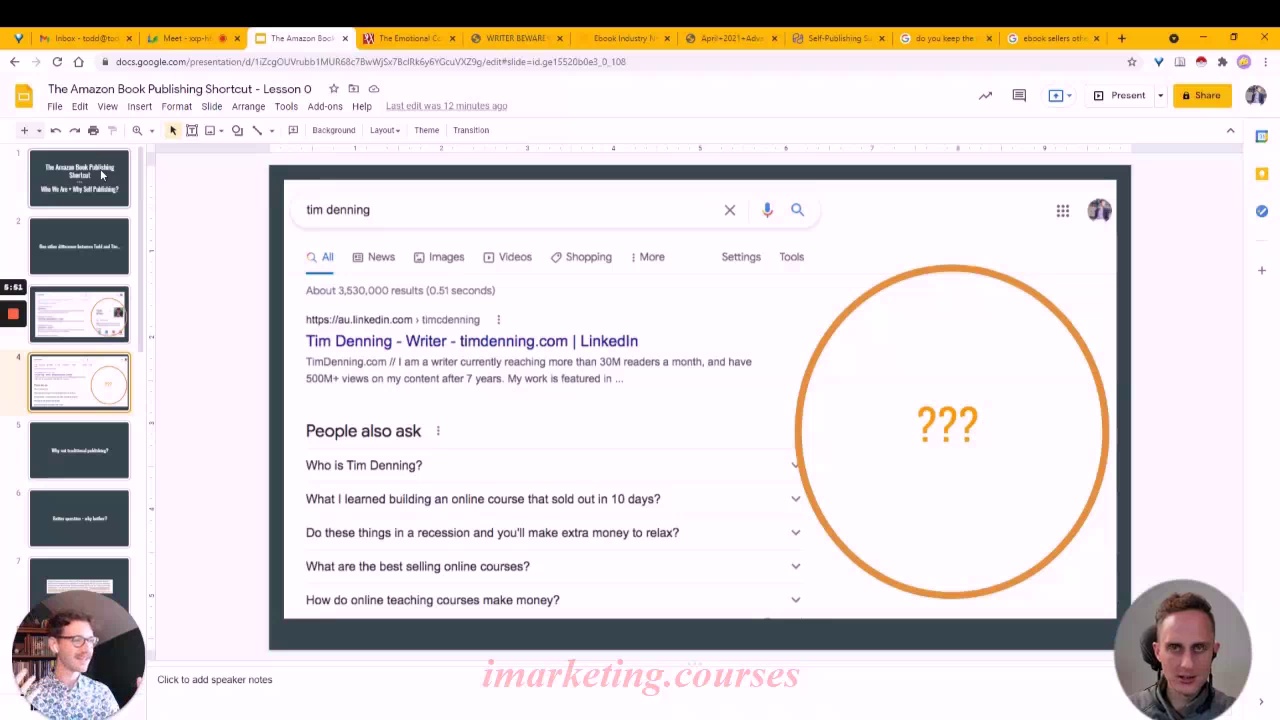
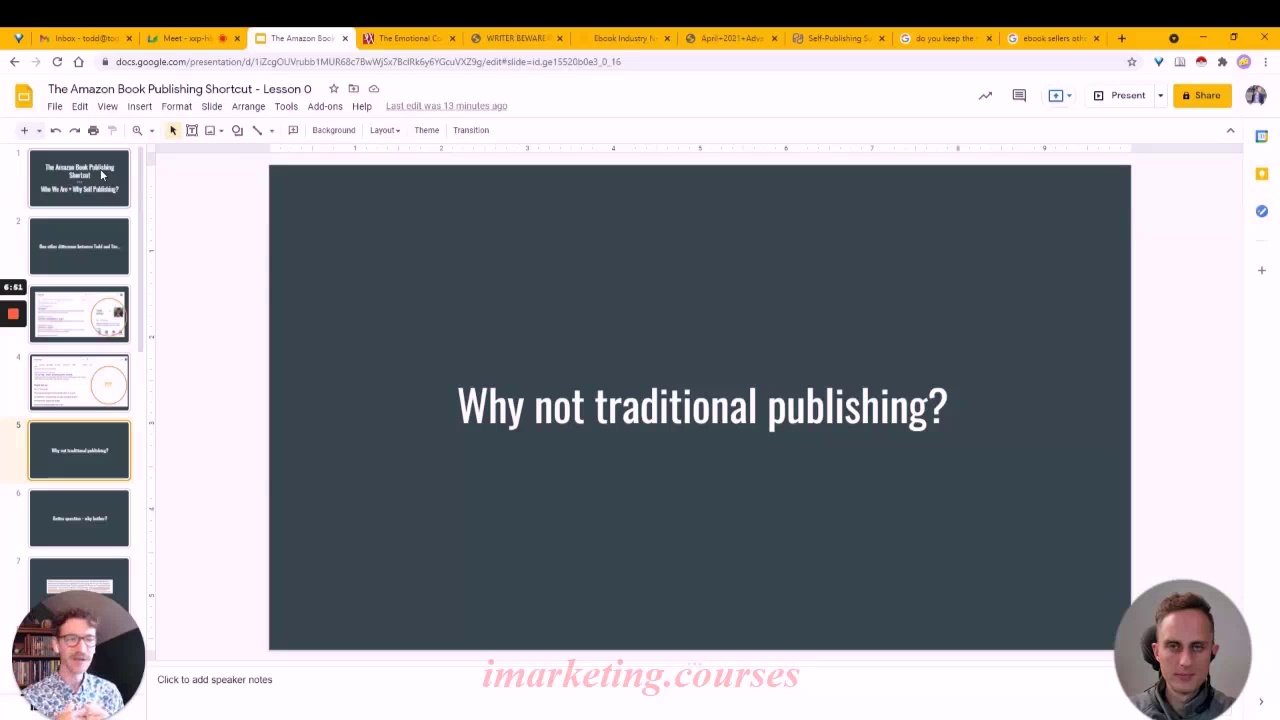
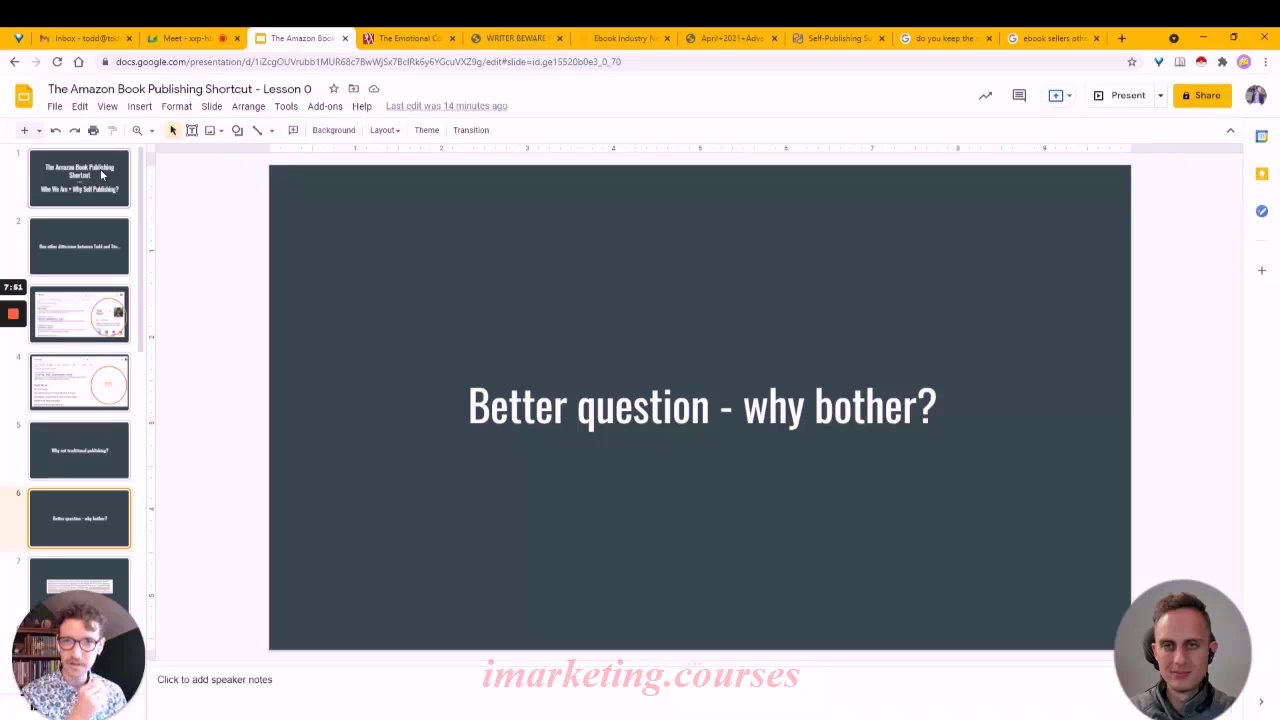
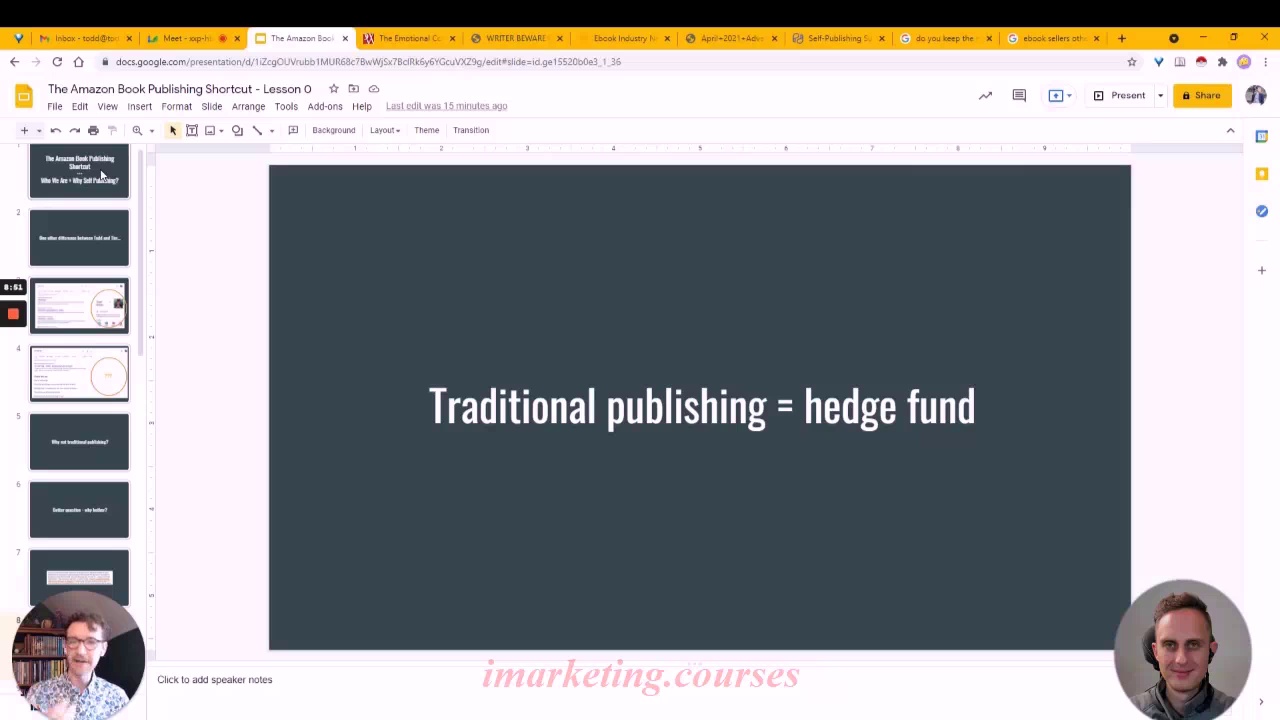
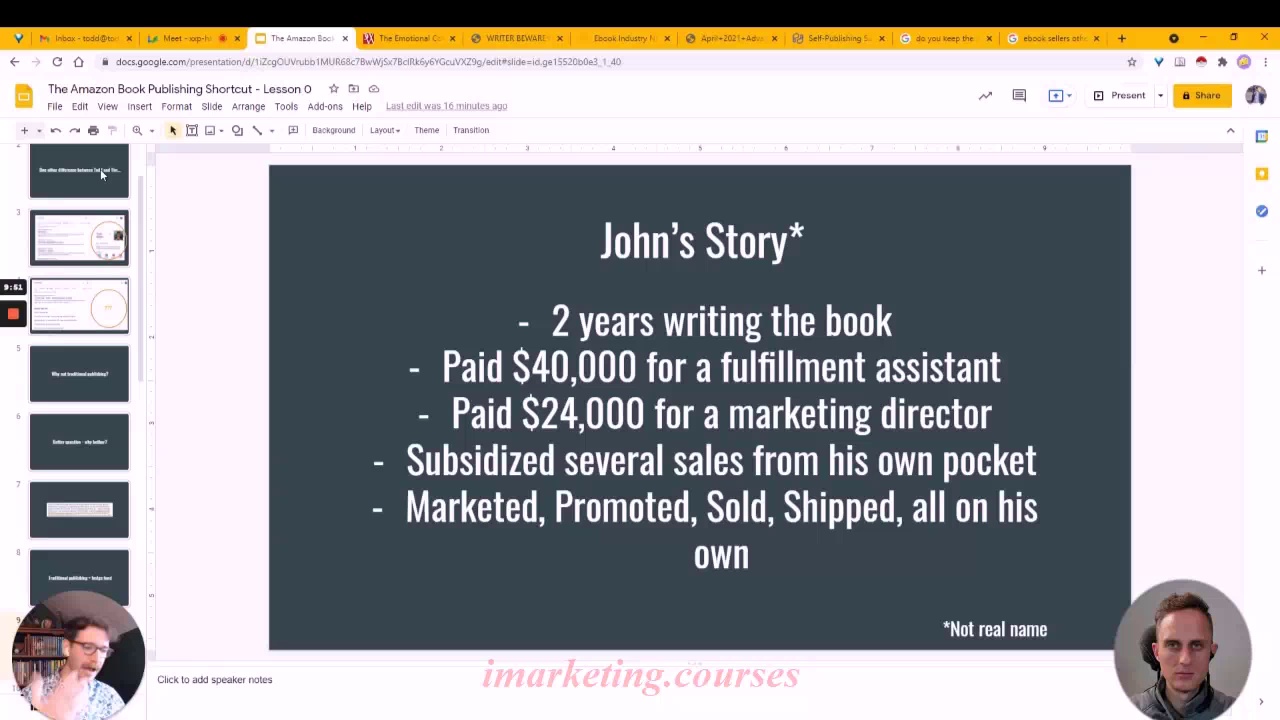
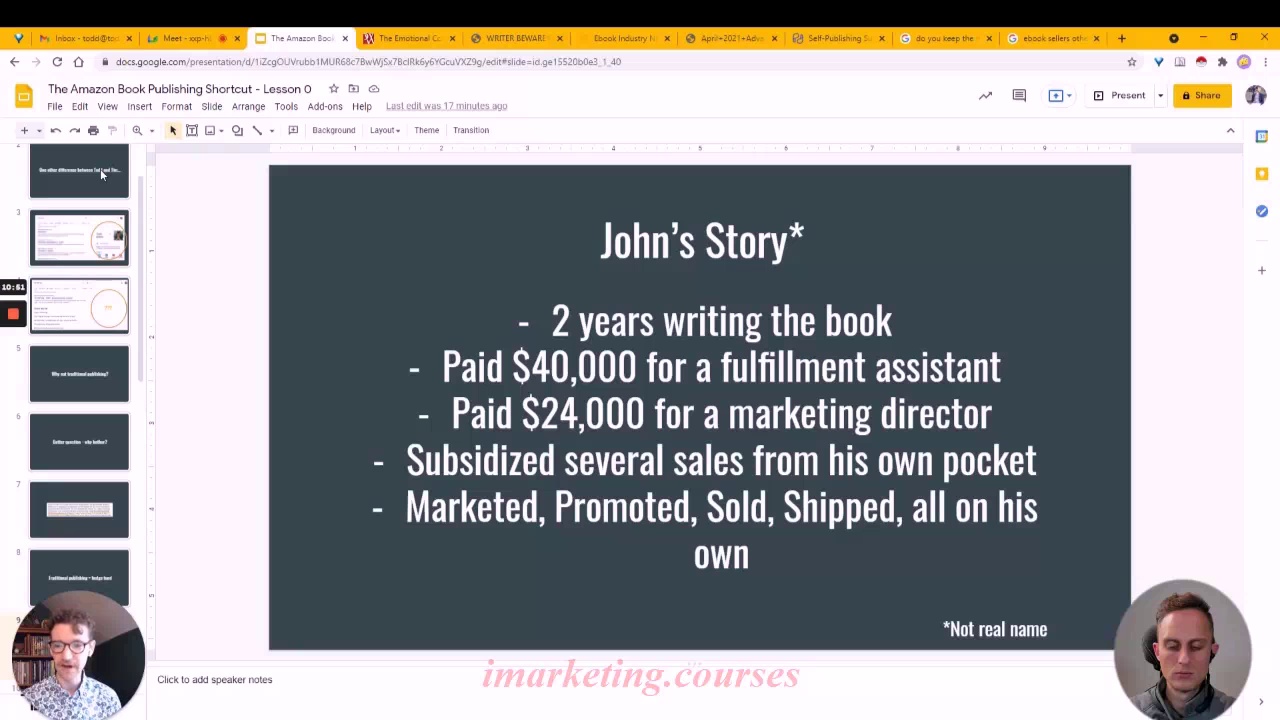
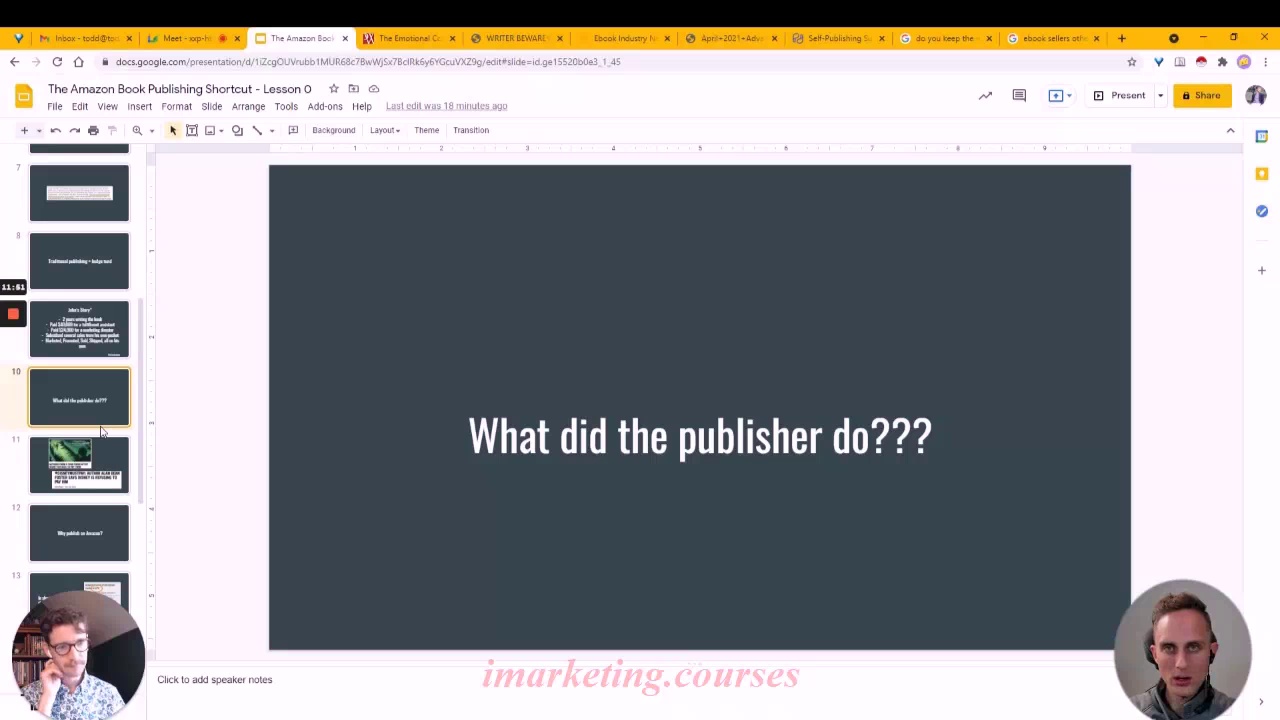
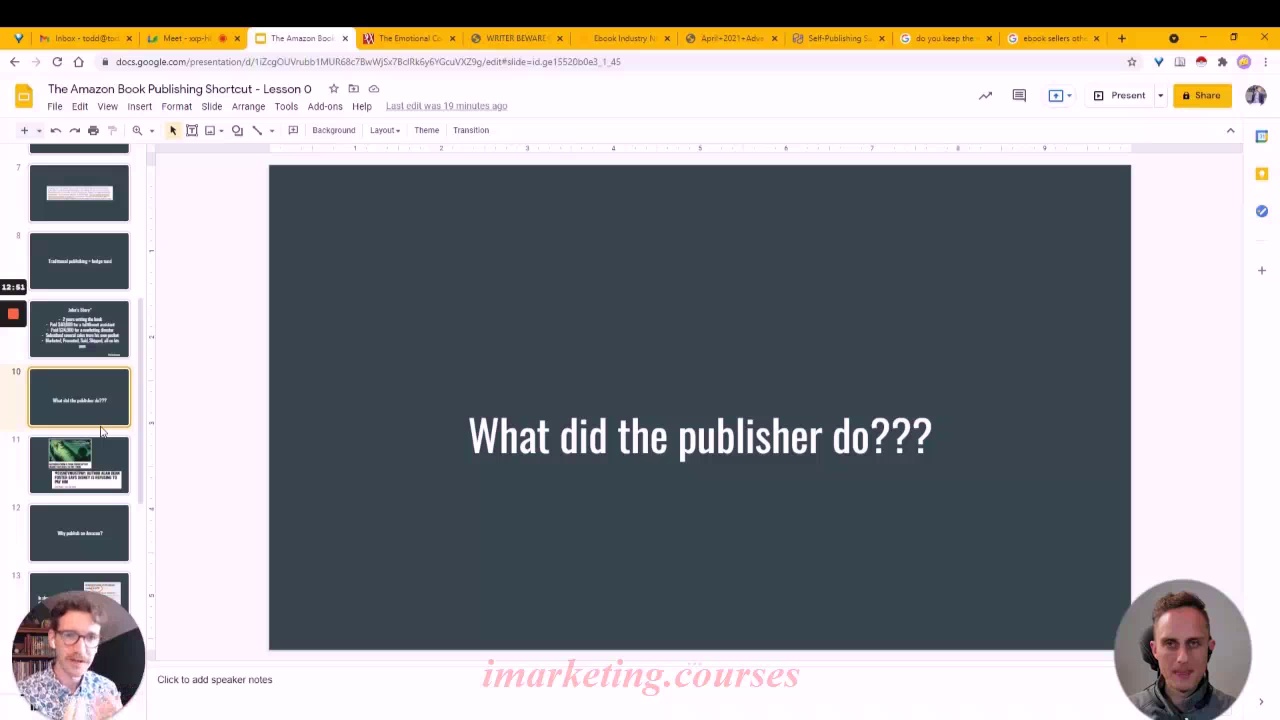
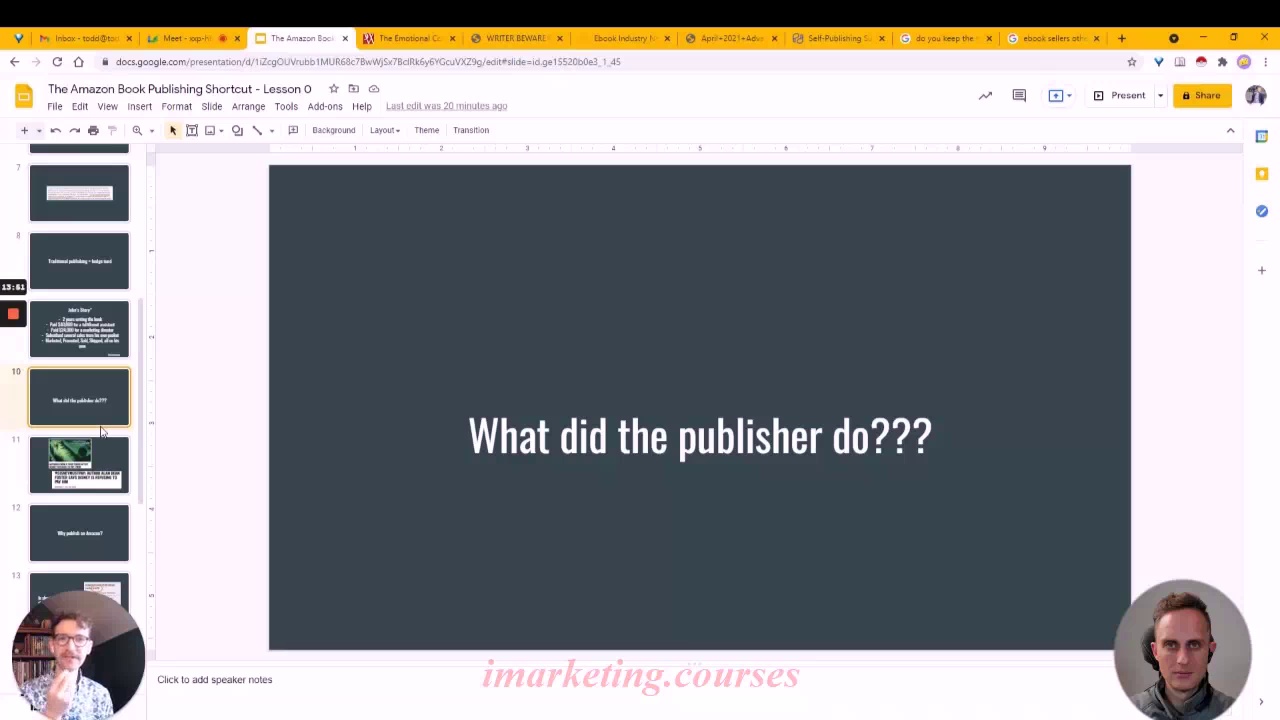
The narrator looked up himself and Tim online and noticed Tim did not have a "knowledge panel" on Google like he and other published authors did. He determines a published book is required for the knowledge panel.
The narrator wants to help Tim self-publish books to get the knowledge panel and says self-publishing allows the author to take control of the publishing process rather than rely on a traditional publisher.
He argues traditional publishing is difficult, provides little support to unknown authors, and publishers act like "hedge funds" investing in authors hoping one becomes a bestseller to compensate for the others who do not earn out their advances.
The narrator shares an example of a friend with a six-figure book deal who spent much of his advance promoting his book since the publisher provided little marketing support.
He concludes that for unknown authors like himself and Tim, self-publishing starting with ebooks makes more financial sense than relying on a traditional print publisher. Self-publishing allows authors to retain control and be more responsive to their audience.
.Tim-D-AmazonBookPubl 0 to 1.1 - Part 3















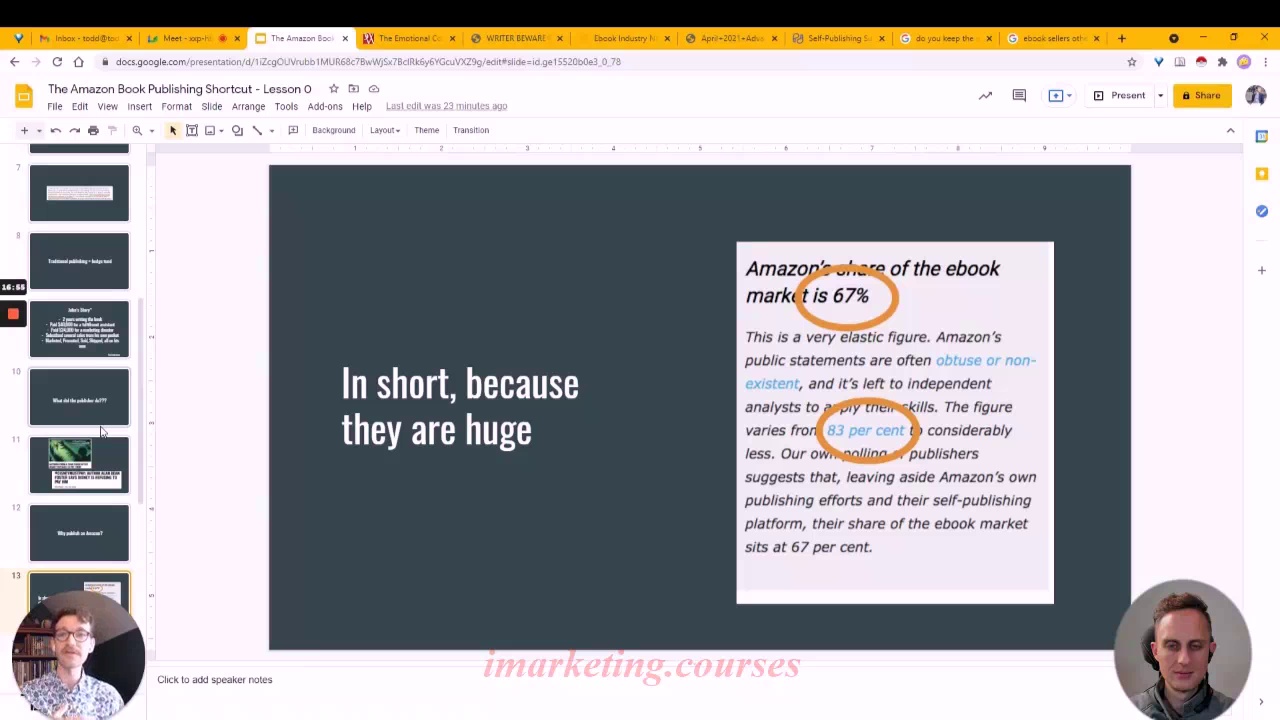
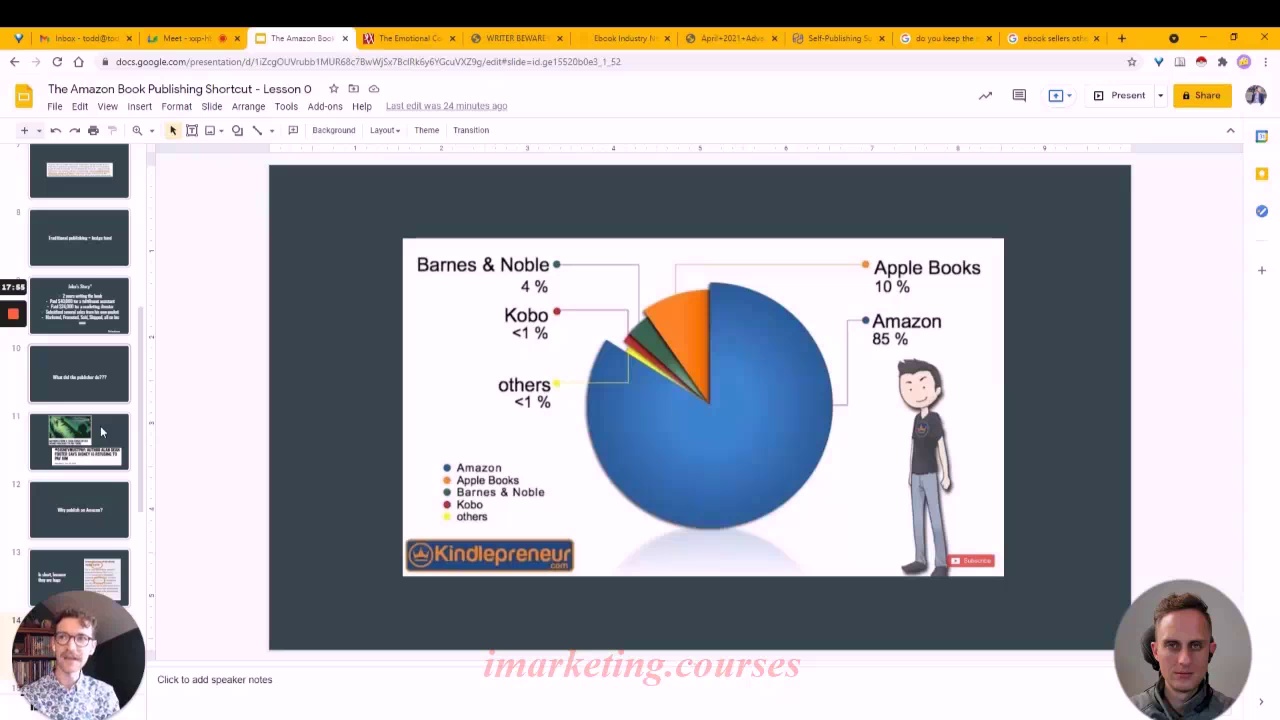
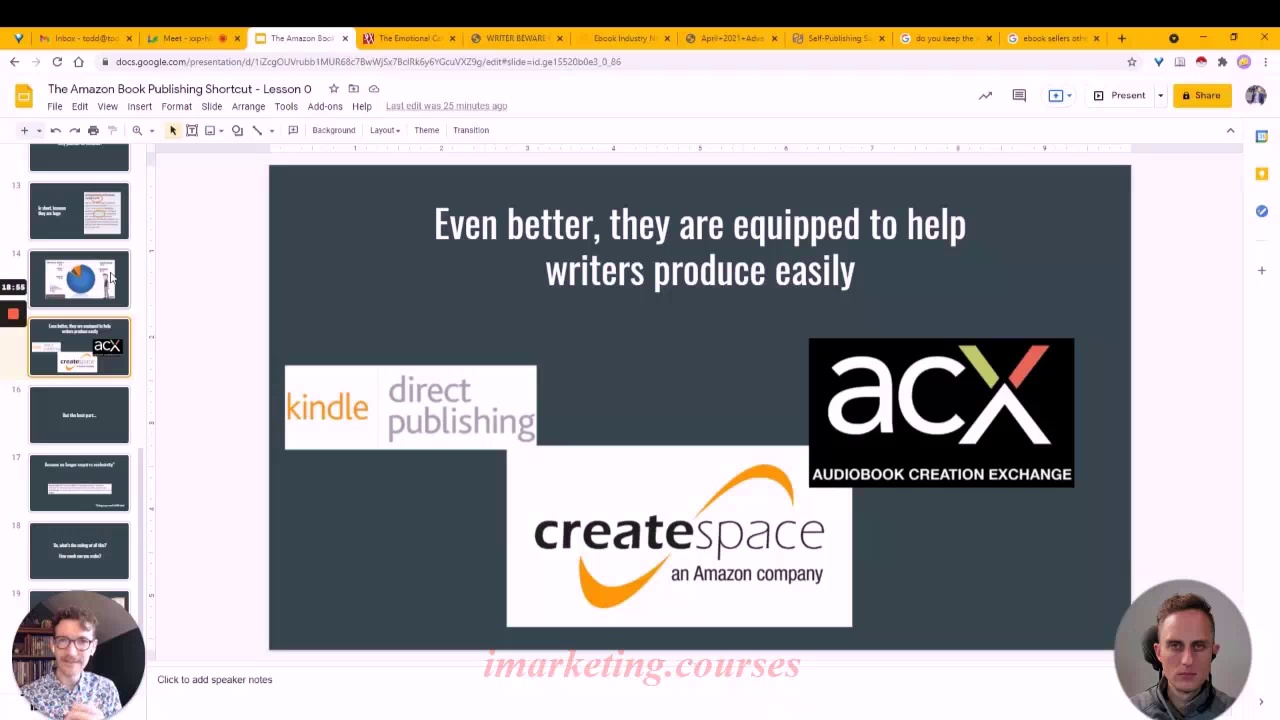
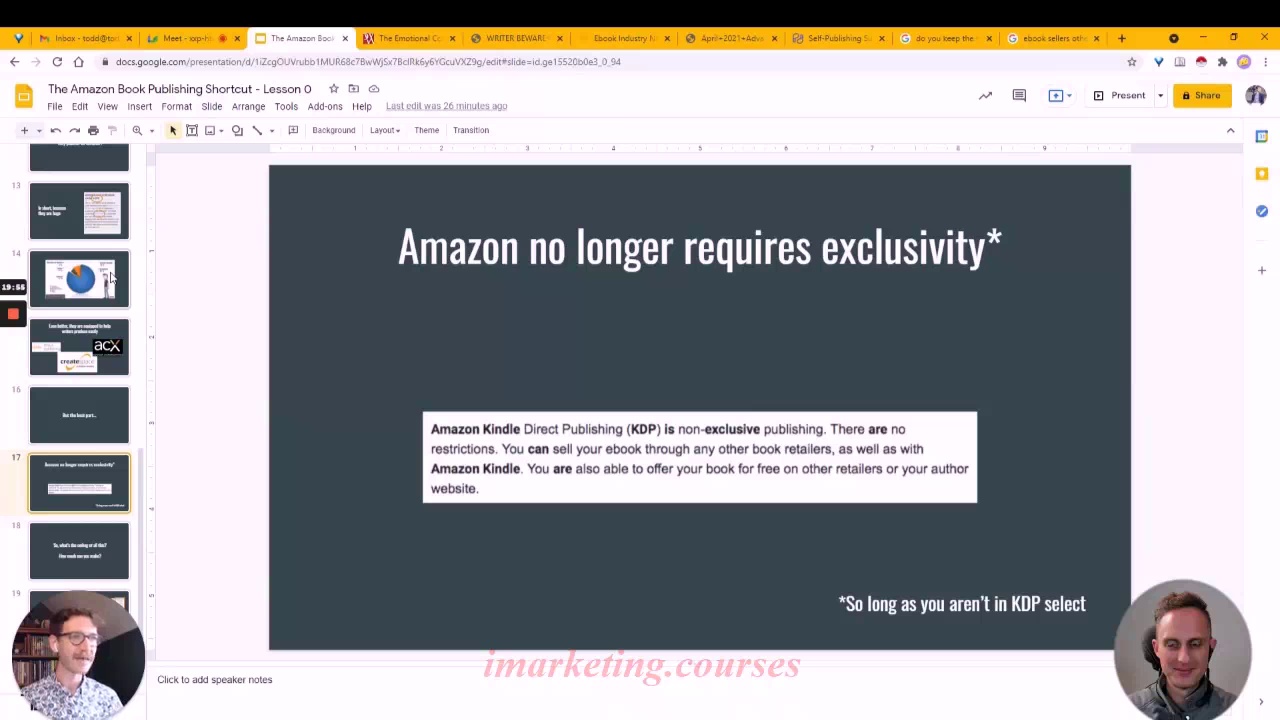
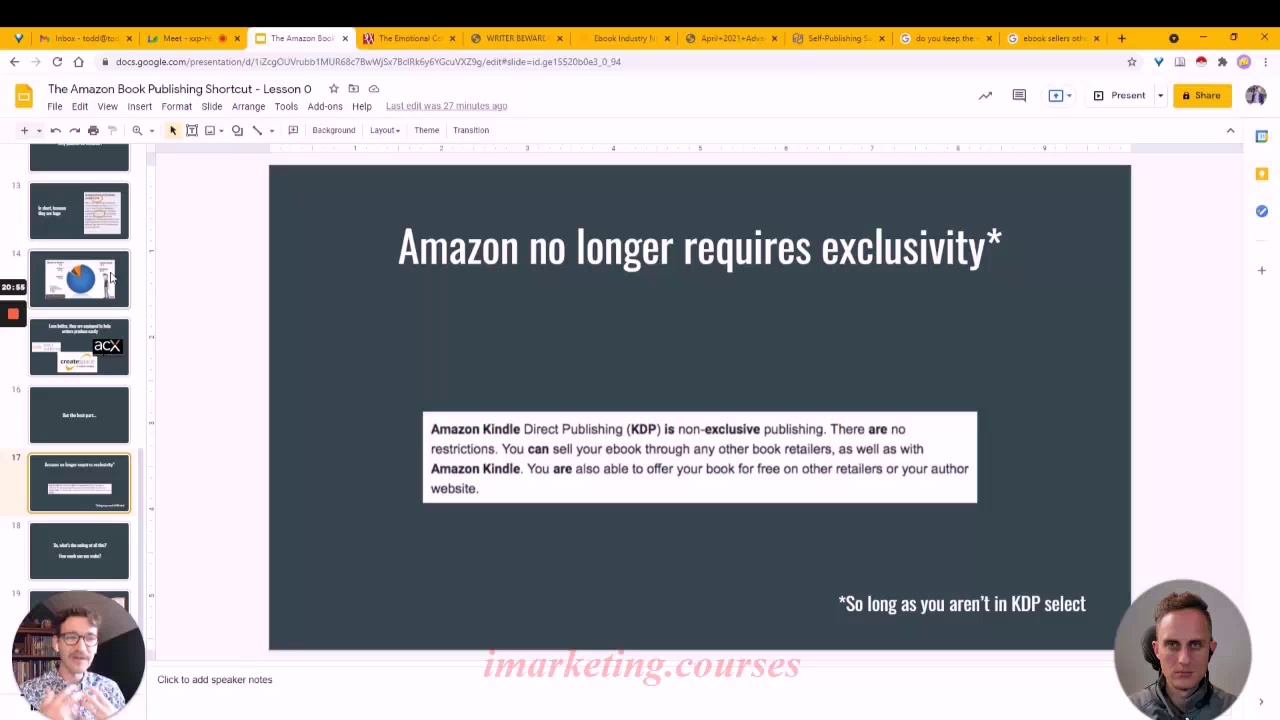
Amazon dominates the ebook market with an estimated 85% share. They have been in the market for over 20 years and have built easy-to-use tools for uploading content. The narrator was surprised to learn Amazon no longer requires exclusivity. This allows authors to publish on their own website in addition to Amazon. The narrator starts with Amazon due to its large customer base before expanding to other platforms.
Key reasons for Amazon's dominance: - Huge customer base ("9,000 pound gorilla") - Early mover advantage in ebooks (since the 1990s) - Concerns about being broken up due to large market share - Easy-to-use self-publishing tools - Allowing non-exclusive publishing
The narrator was surprised Amazon no longer requires exclusivity. This is important so authors retain rights and can publish elsewhere. The strategy is to start with Amazon for discovery and readership, then expand to other platforms.
.Tim-D-AmazonBookPubl 0 to 1.1 - Part 4





















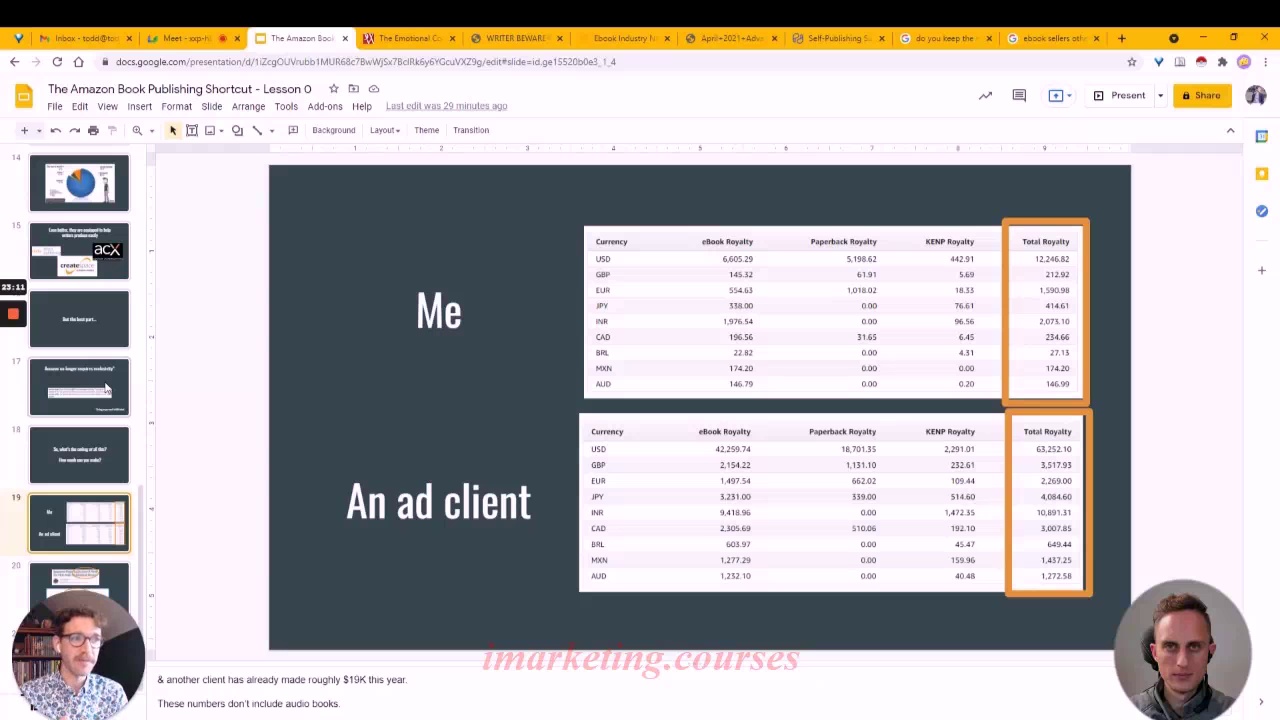
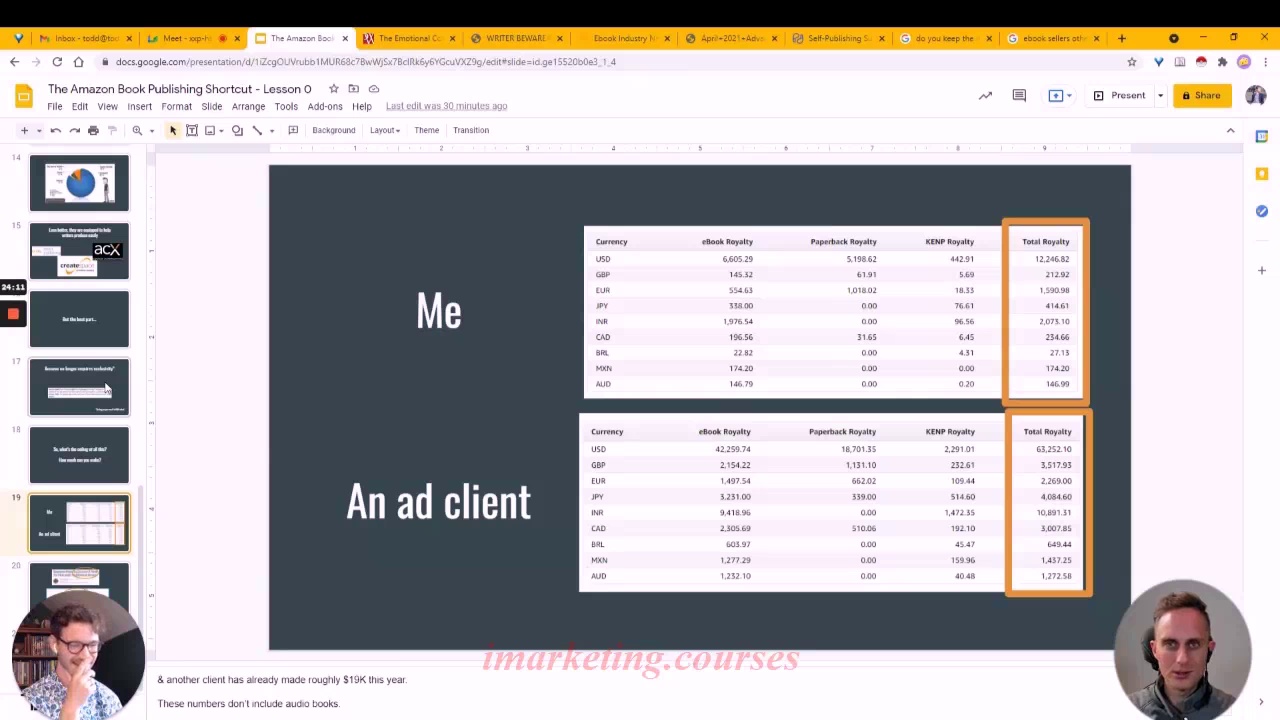
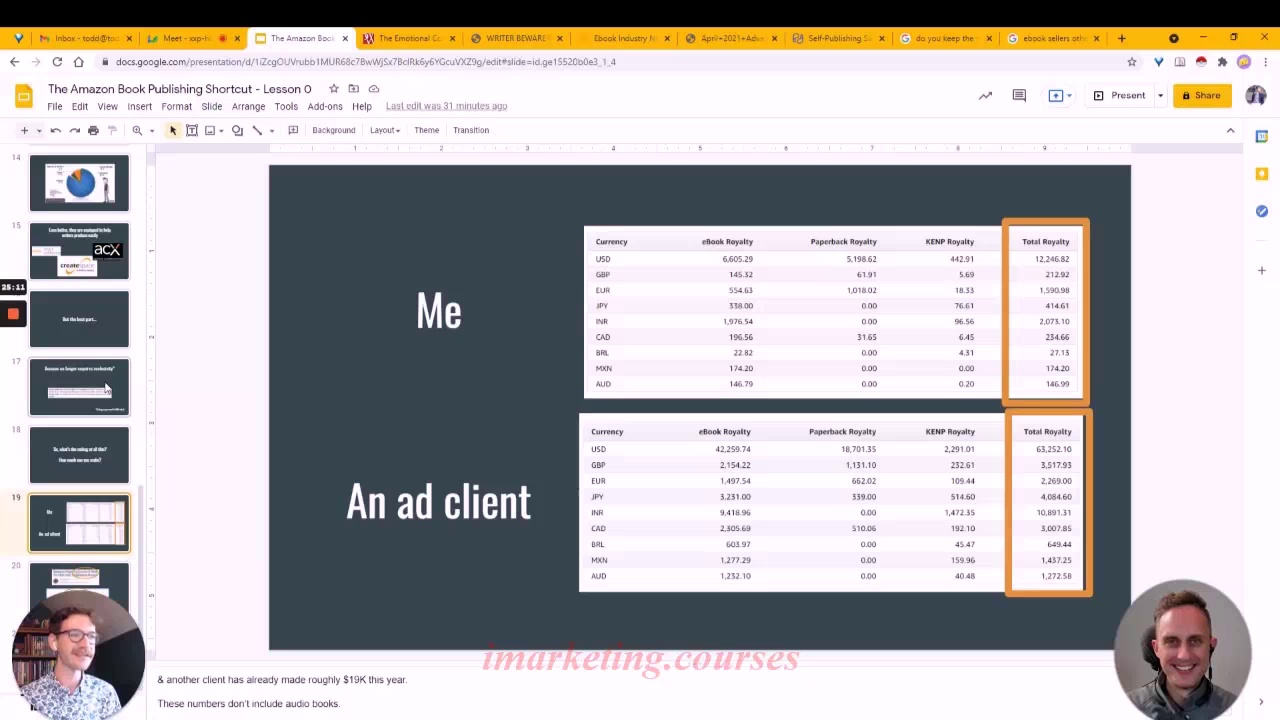
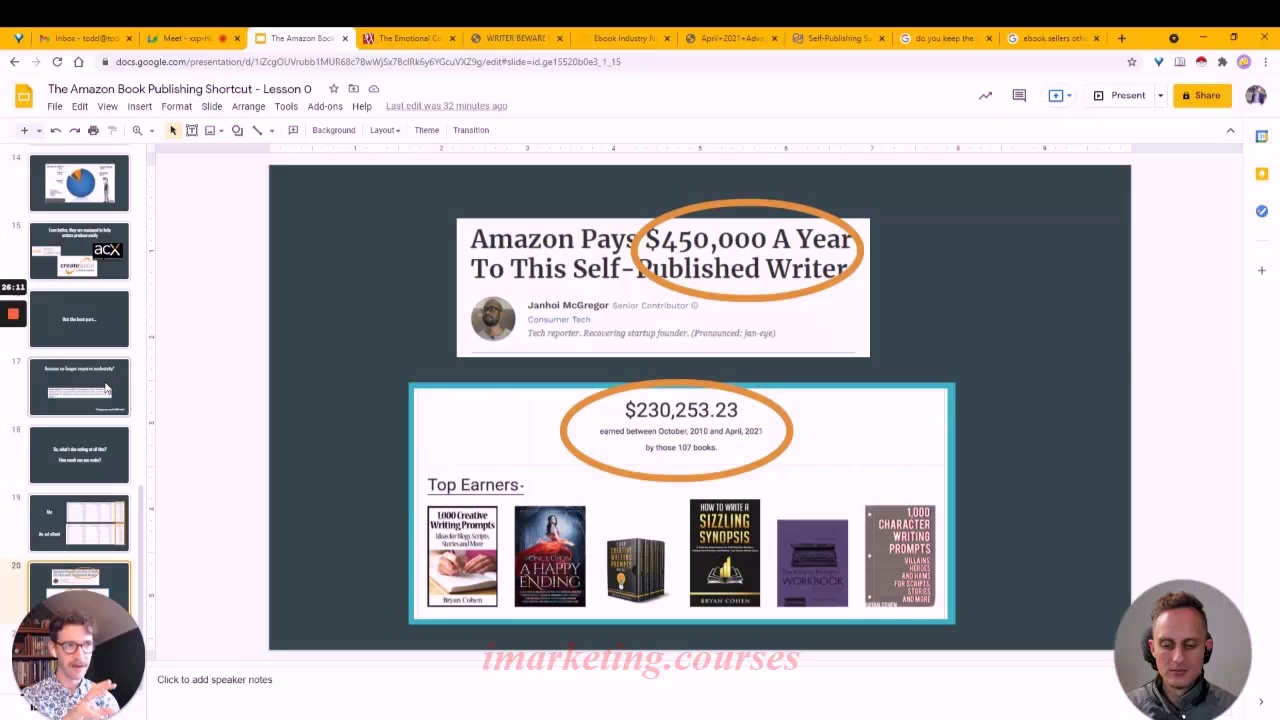
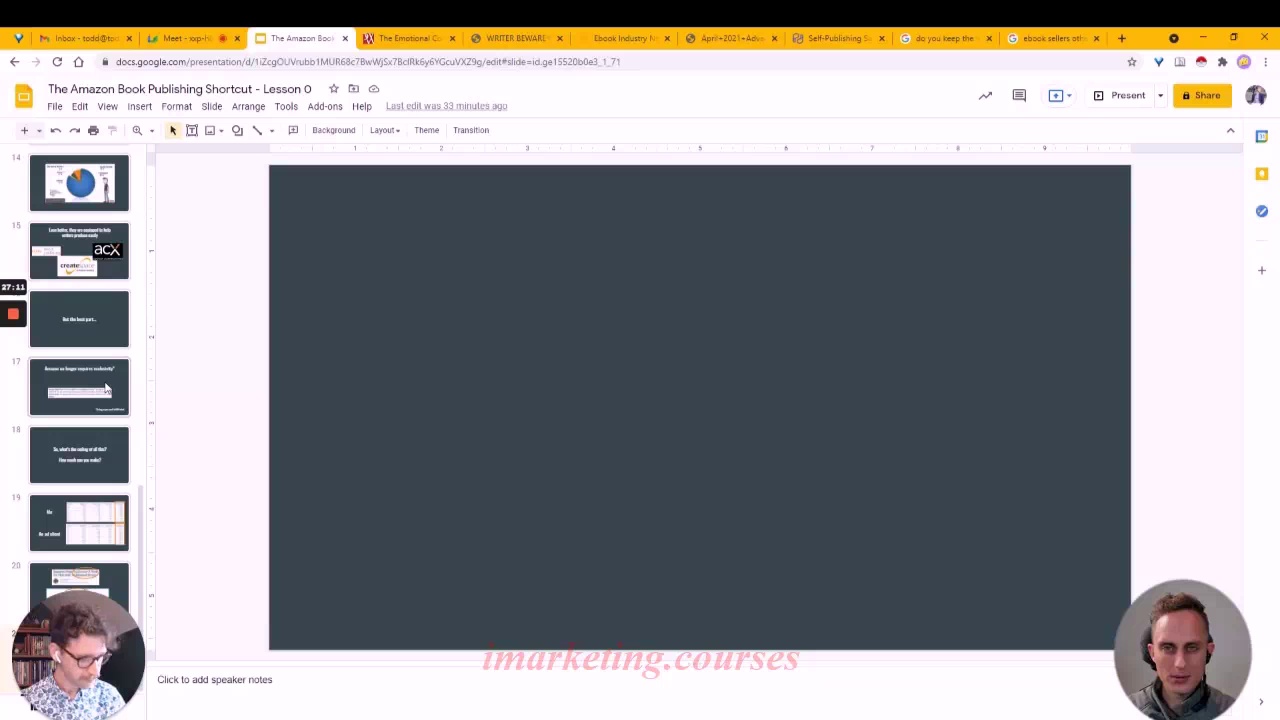
The narrator earned five figures in income just from book sales on Amazon. His client earned six figures. Audiobook sales can double earnings. Building multiple revenue streams from a book (such as courses or consulting) is key.
Forbes profiled authors making up to half a million dollars per year just on Amazon book sales. Two examples were Mark Dawson and Brian Cohen. These authors built businesses beyond just books.
The potential earnings on Amazon have no ceiling. The narrator convinces us that self-publishing on Amazon makes more sense than chasing traditional publishers. We can close the chapter on them and focus on self-publishing.
.Tim-D-AmazonBookPubl 0 to 1.1 - Part 5


























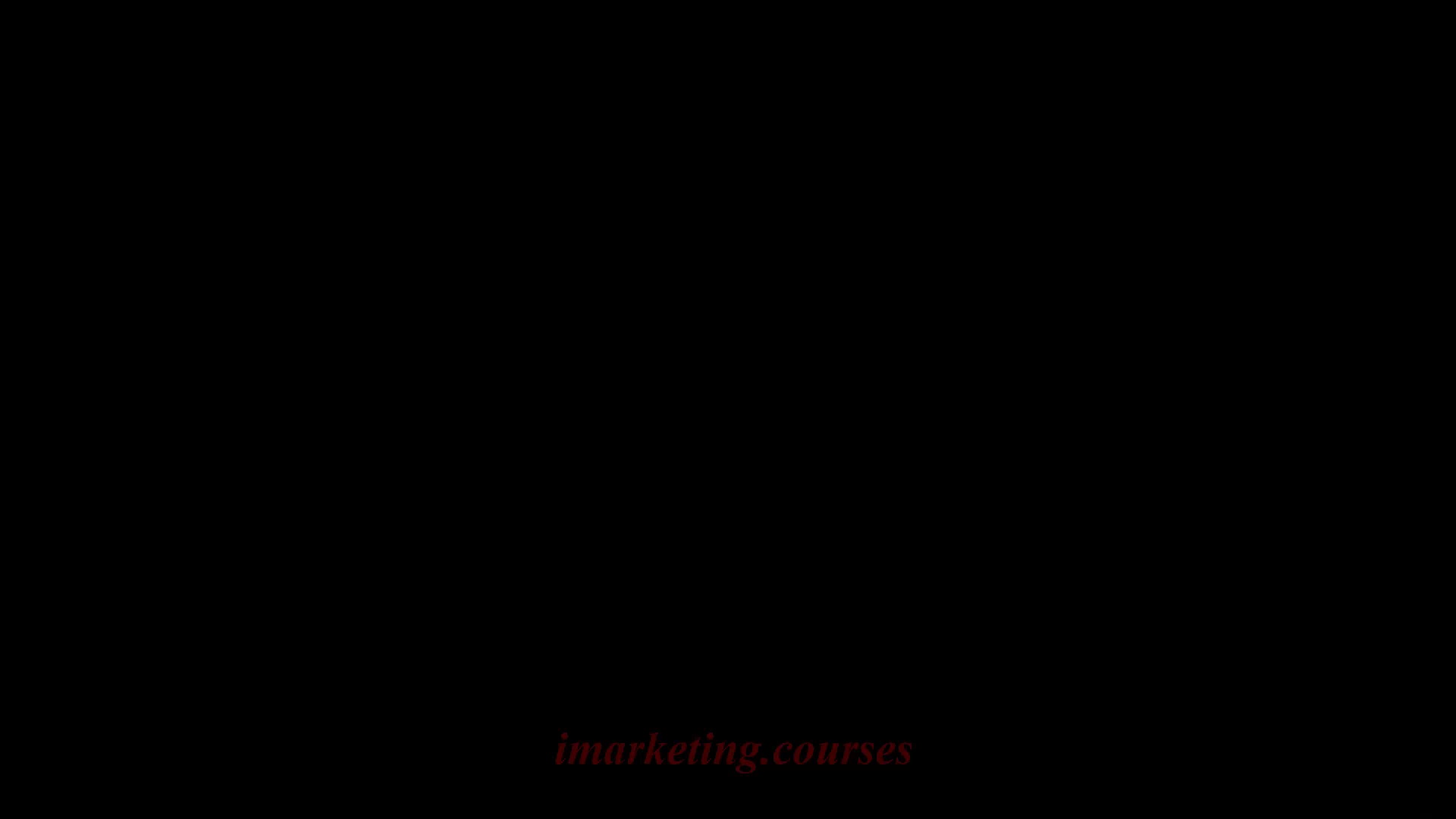
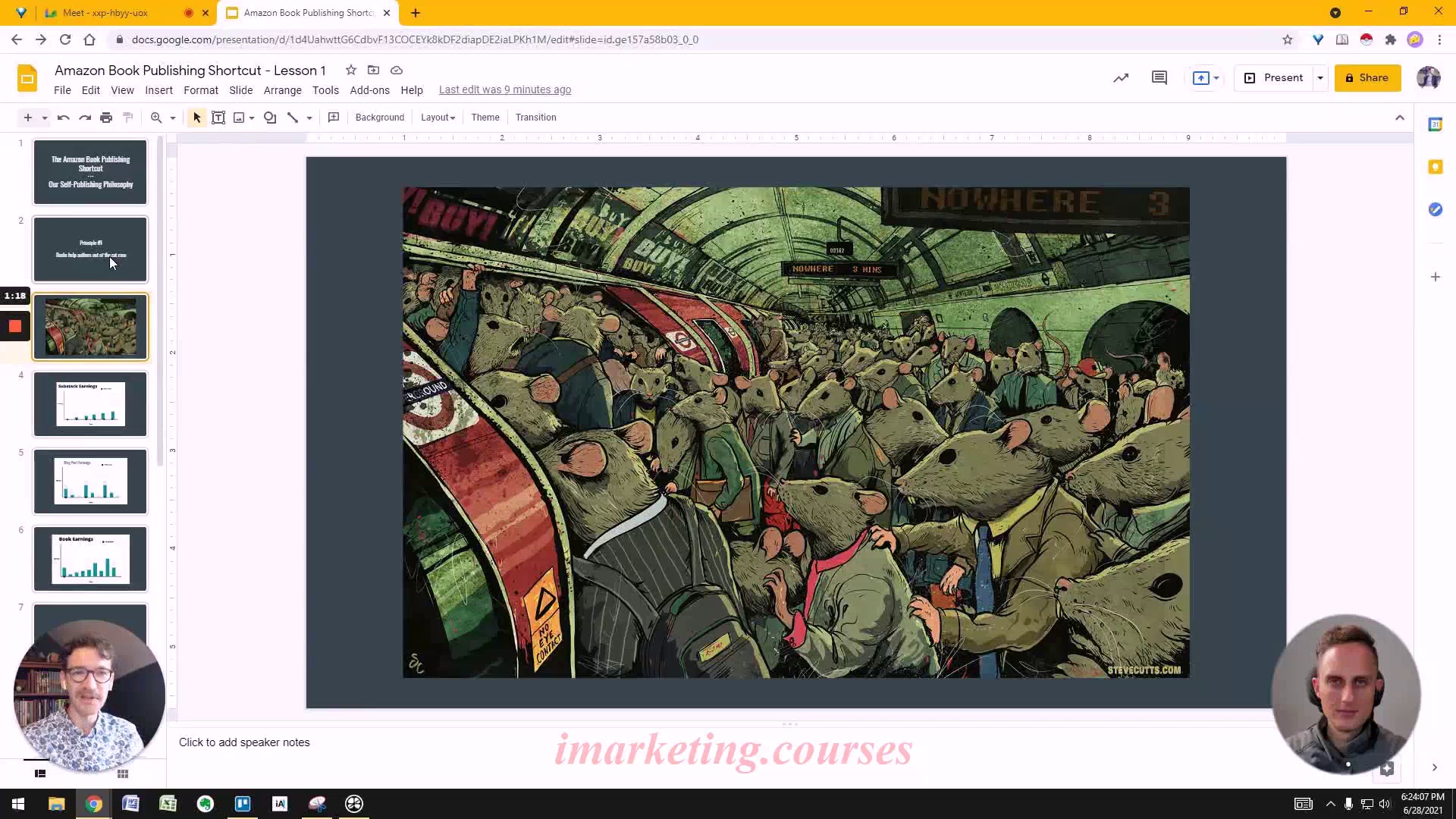
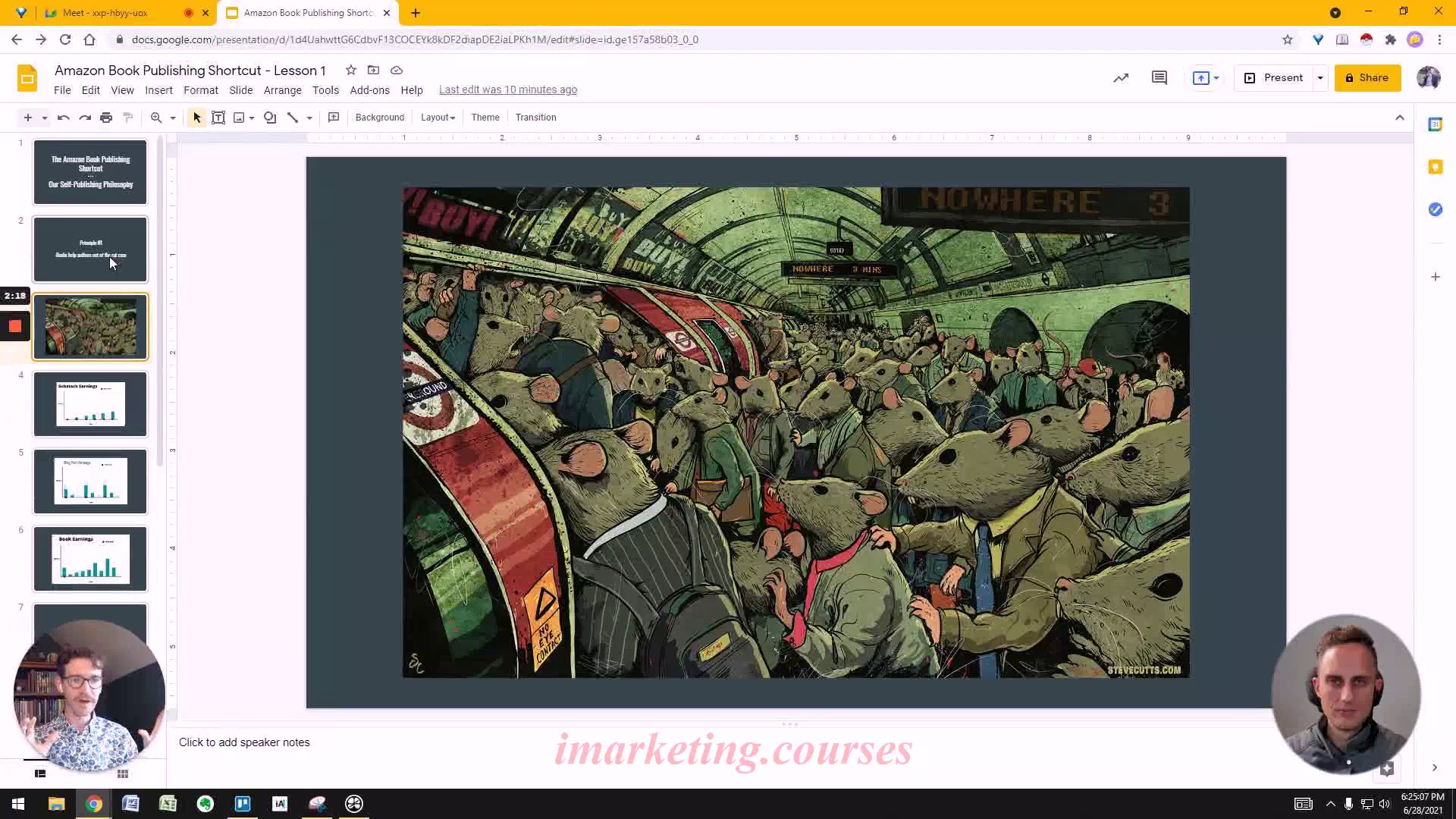
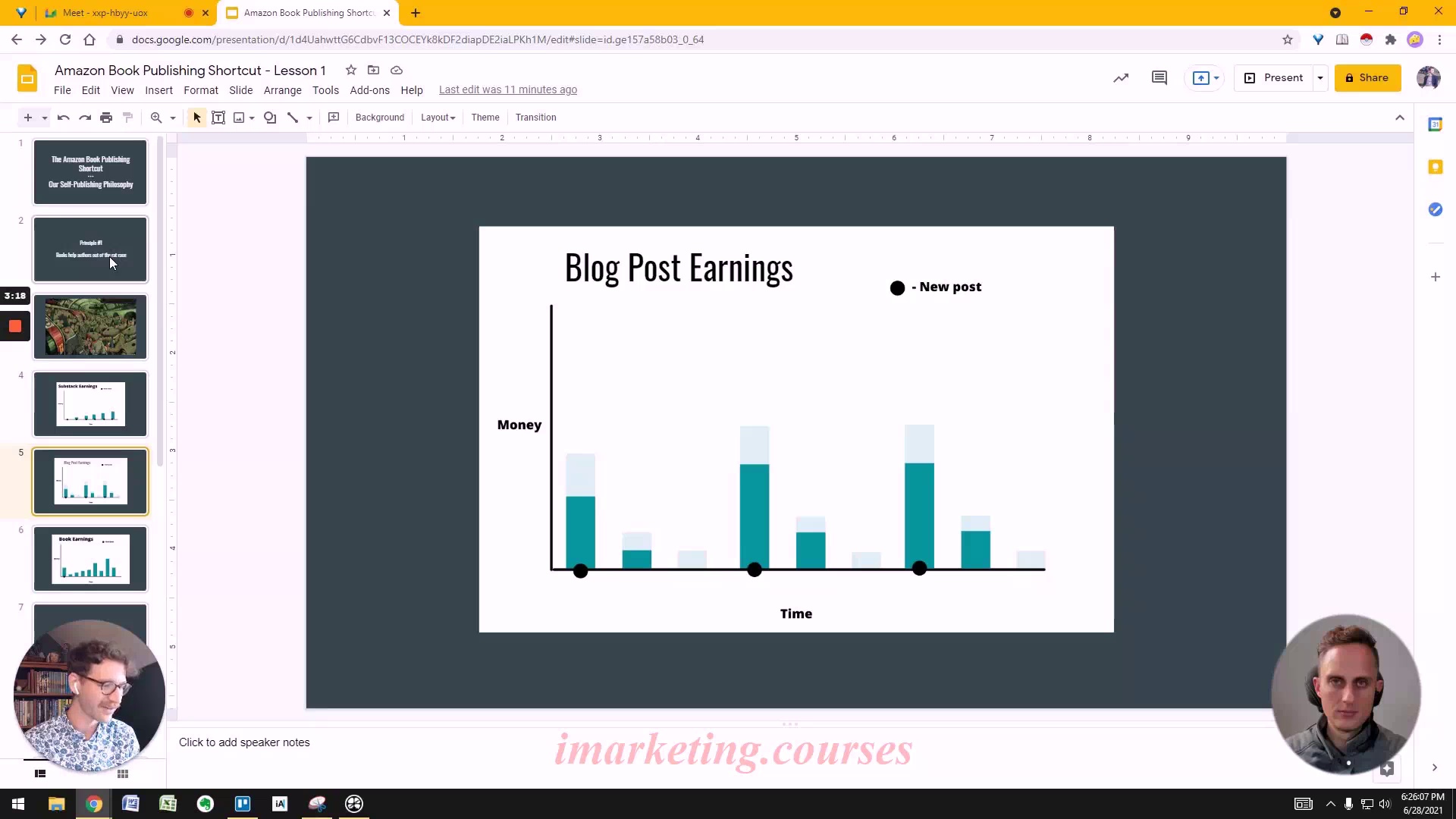
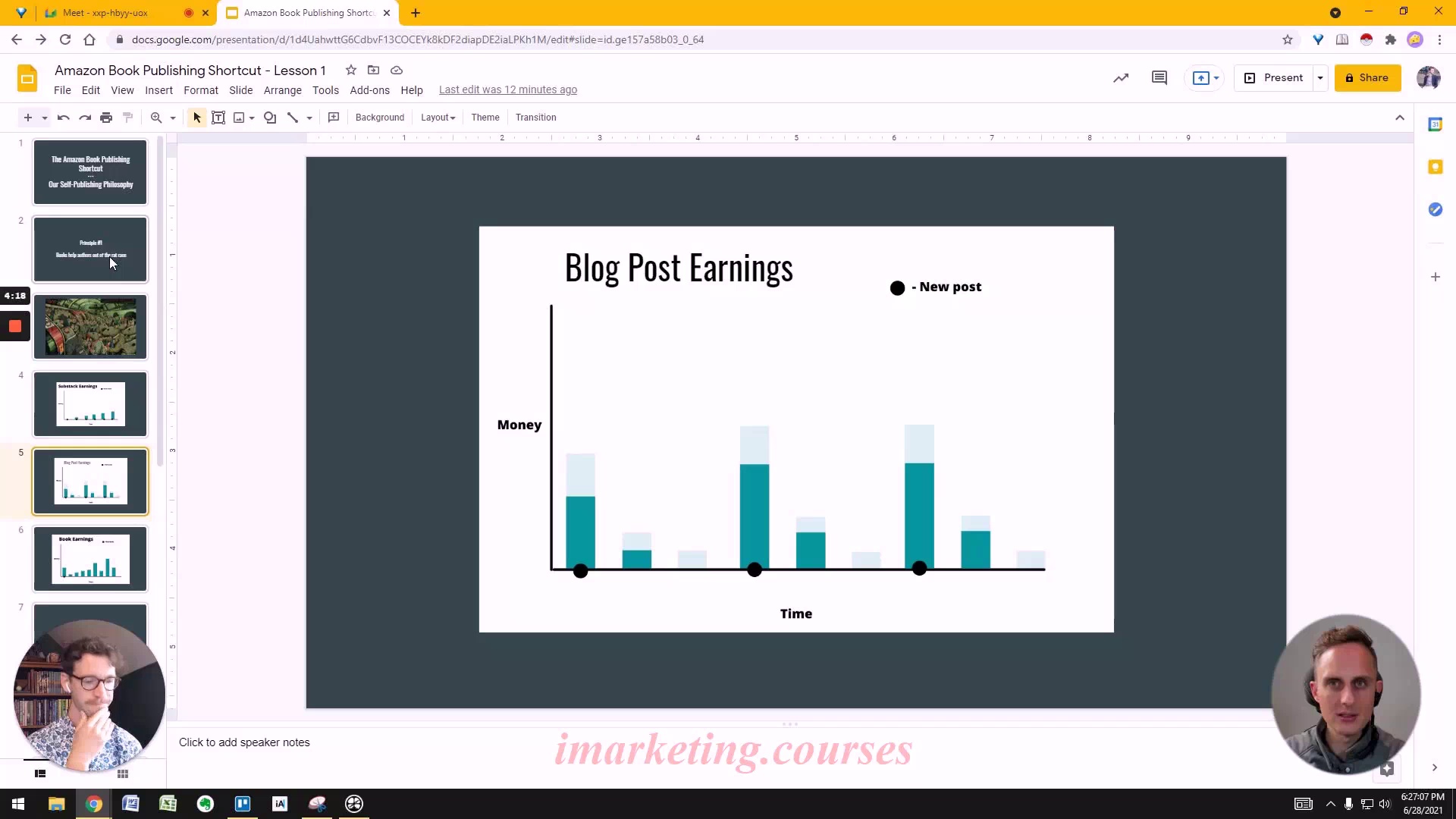
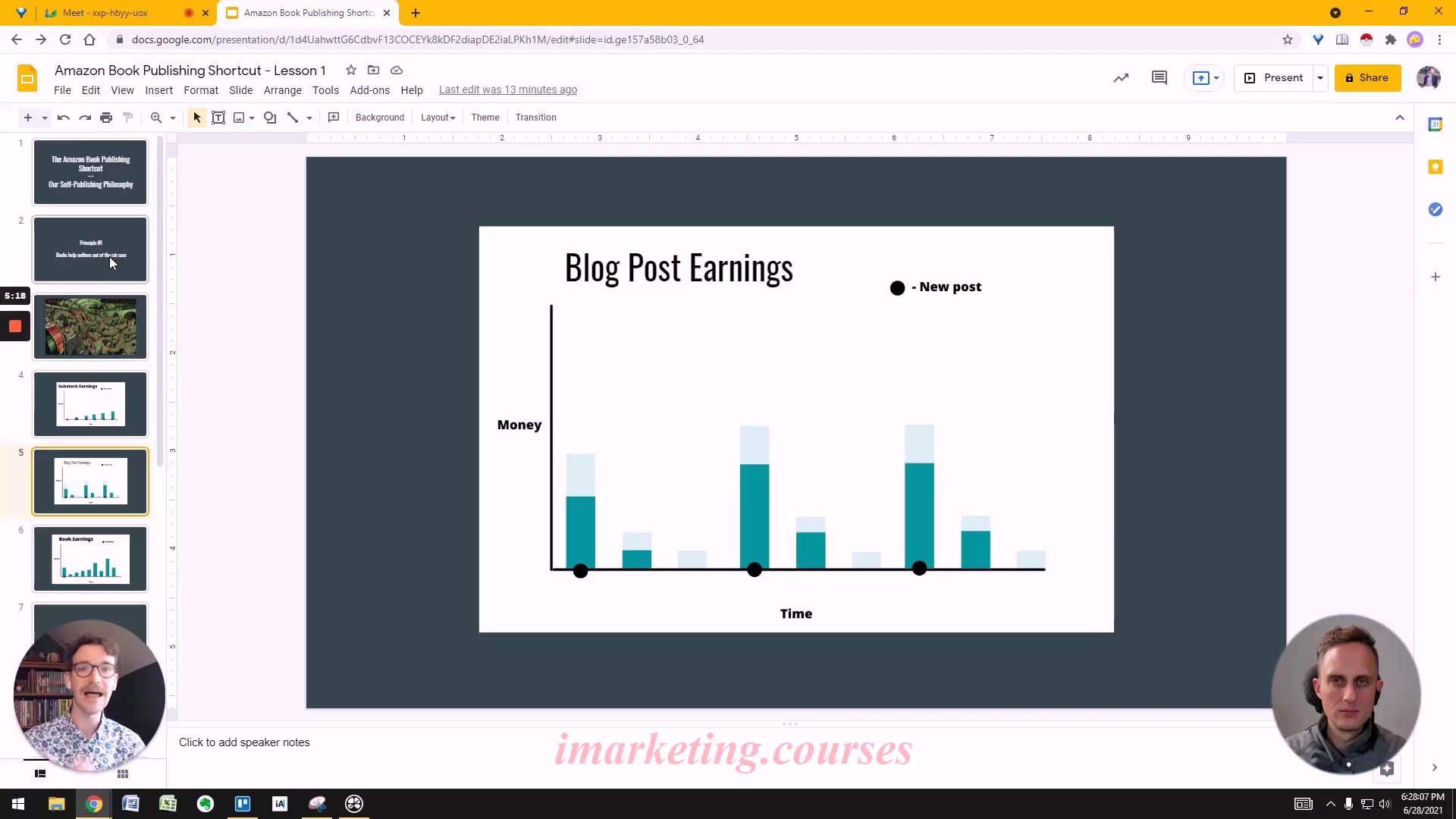
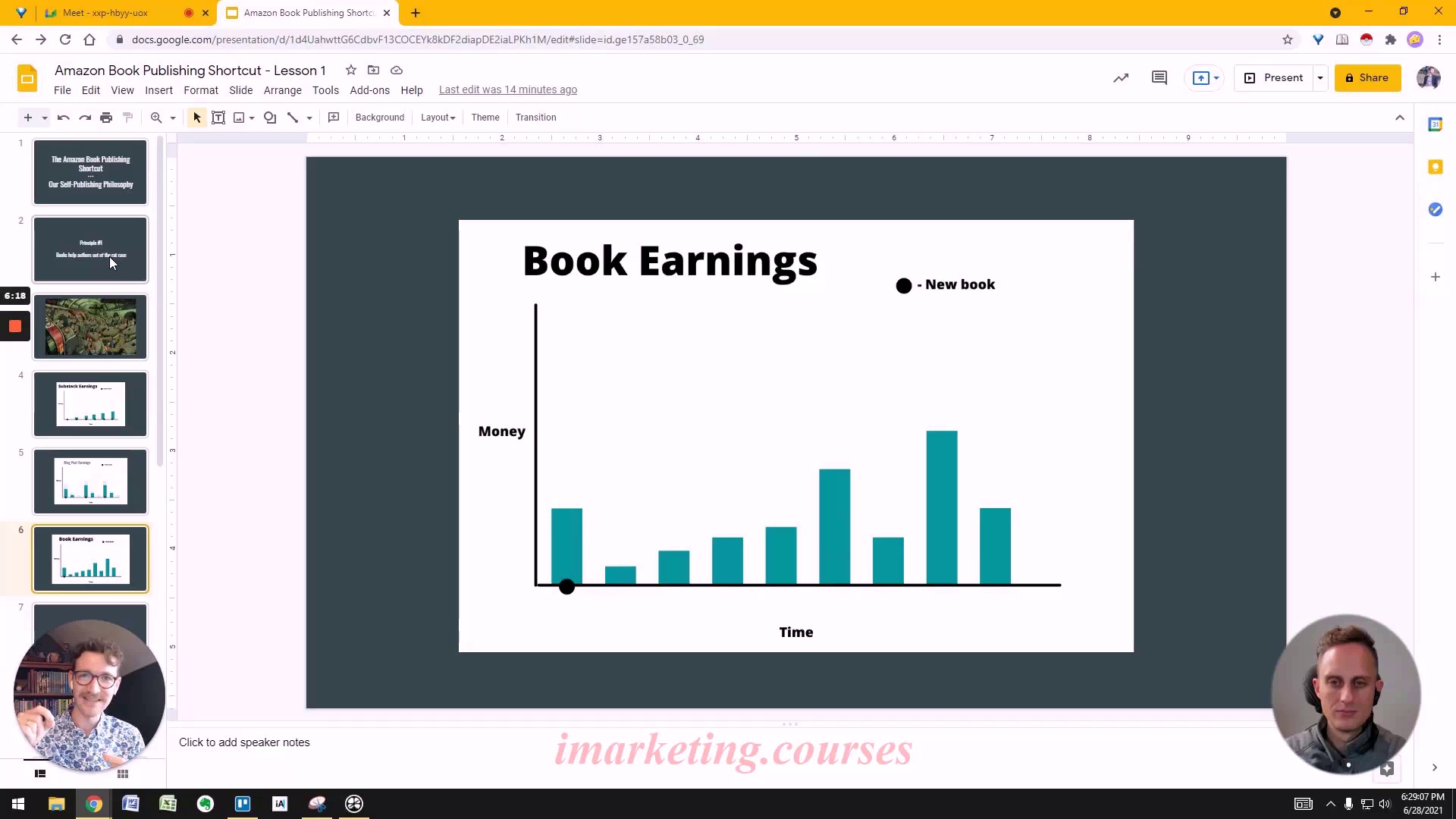
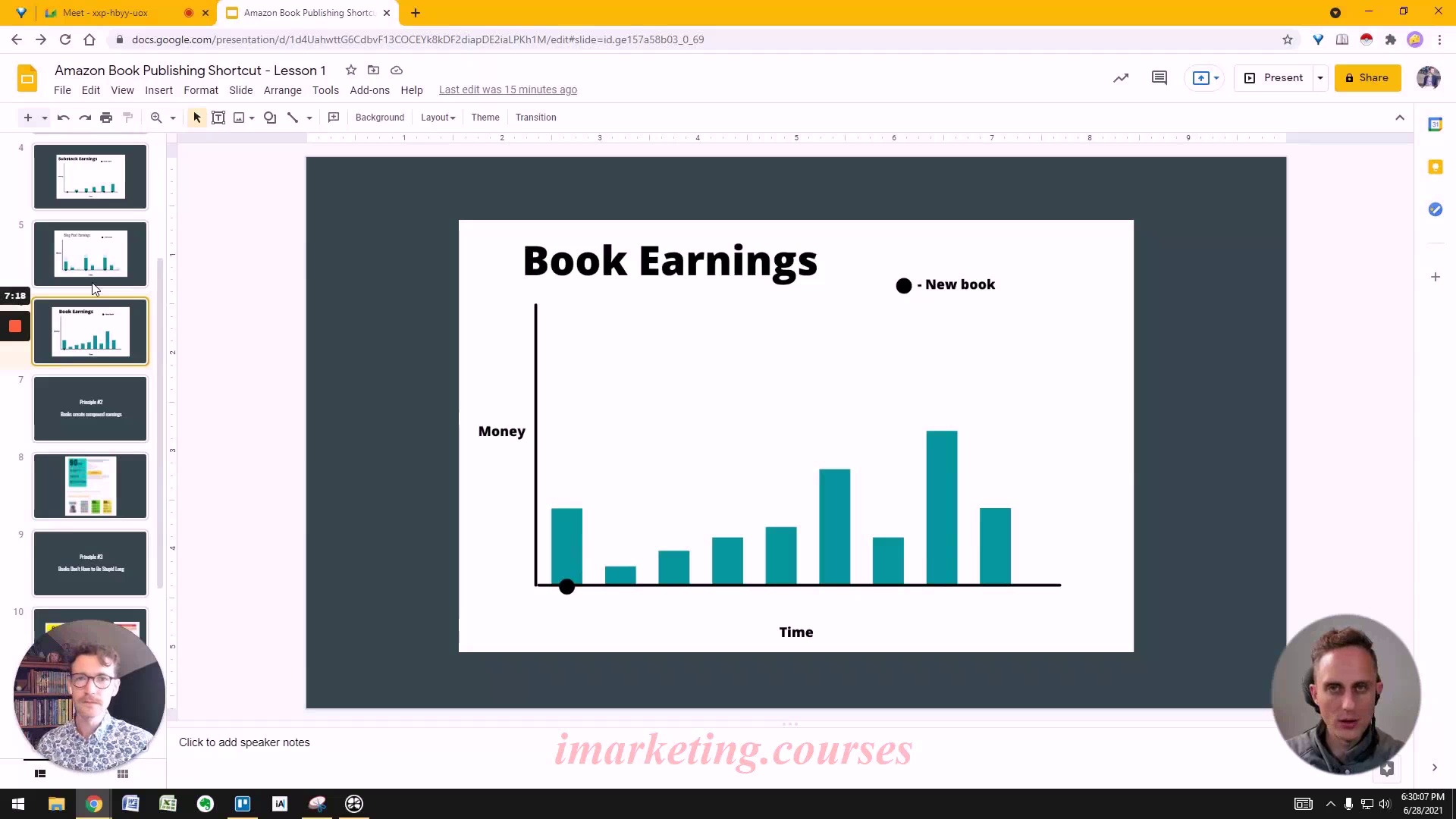
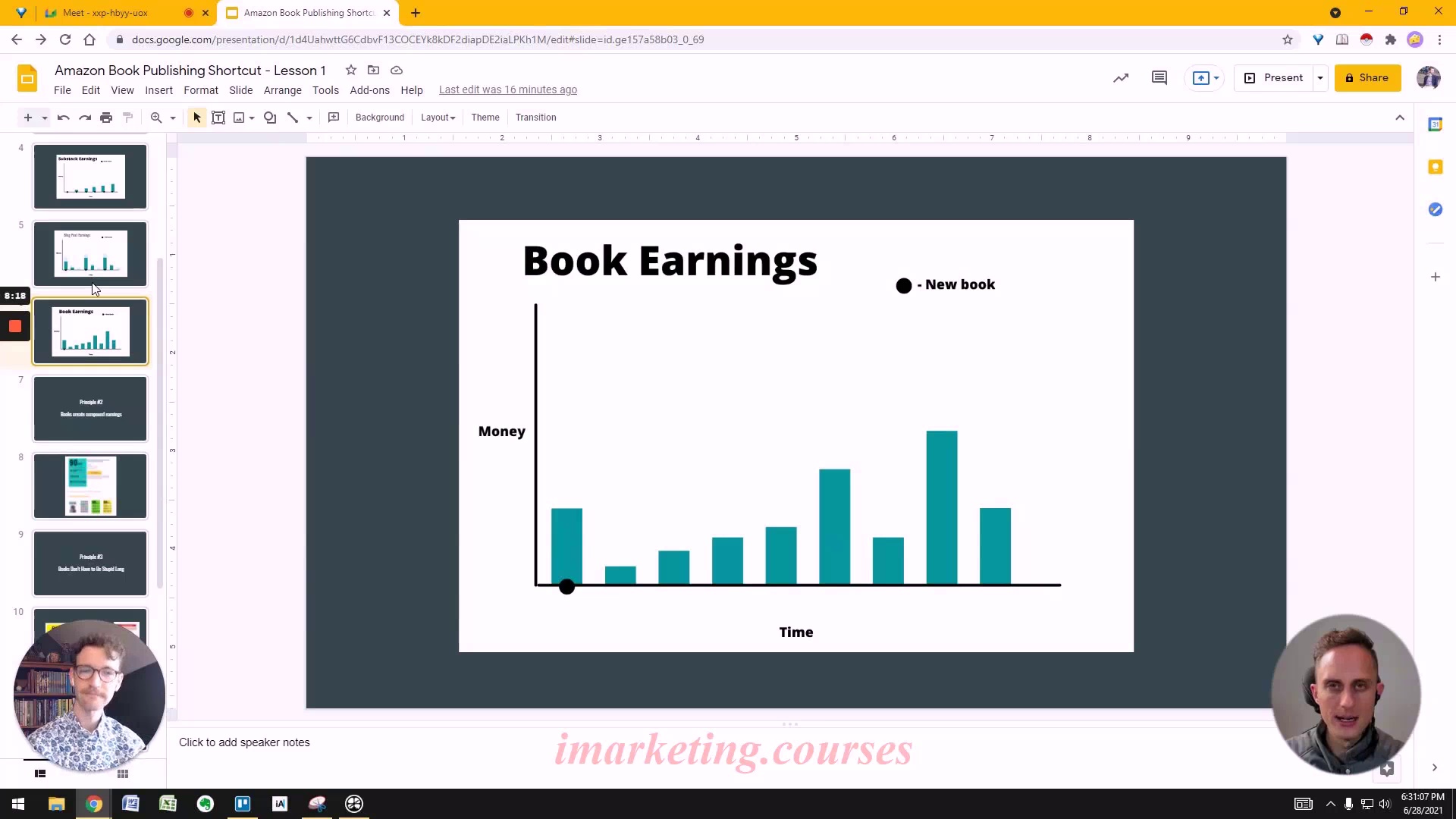
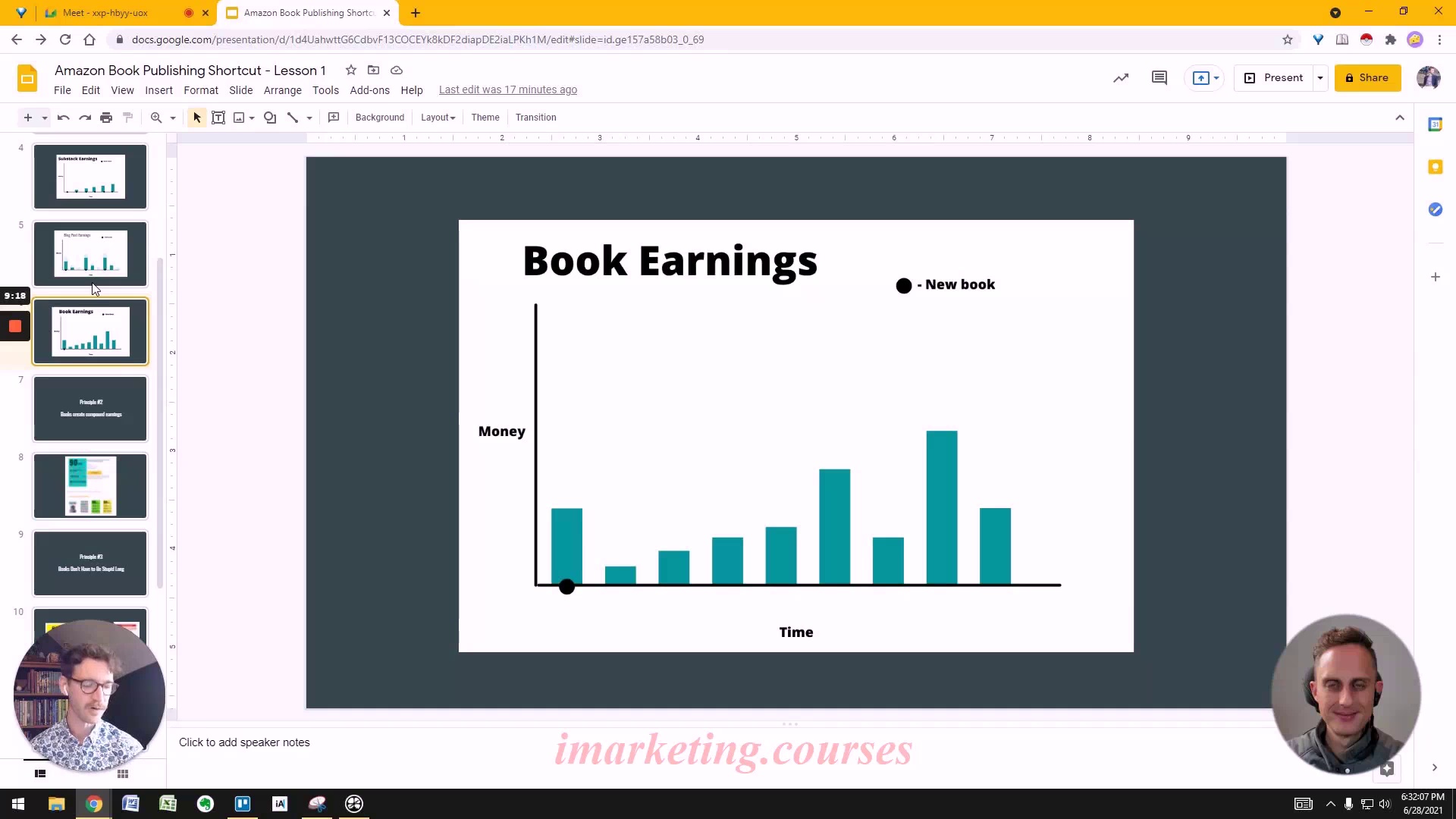
Books help authors break out of the "rat race" by providing recurring revenue for work already completed. With other content models like newsletters or blogging, authors must continually produce new content to earn money.
The narrator discusses various monetization models for writers: Substack and other newsletters require regularly publishing new content to retain paid subscribers; Medium, LinkedIn, and blogging platforms pay based on traffic and new posts; Patreon-style "donation" platforms provide unpredictable income without an exchange of value.
In contrast, books earn royalties for years after publication with no additional work required. The narrator's highest earning book was published 6 years ago and still generates hundreds of dollars per month.
The narrator believes writers should use a combination of models, but books build creator-owned intellectual property and reliable income streams.
New web 3.0 platforms may allow writers to own more content and split earnings in decentralized ways, but these are early stage.
.